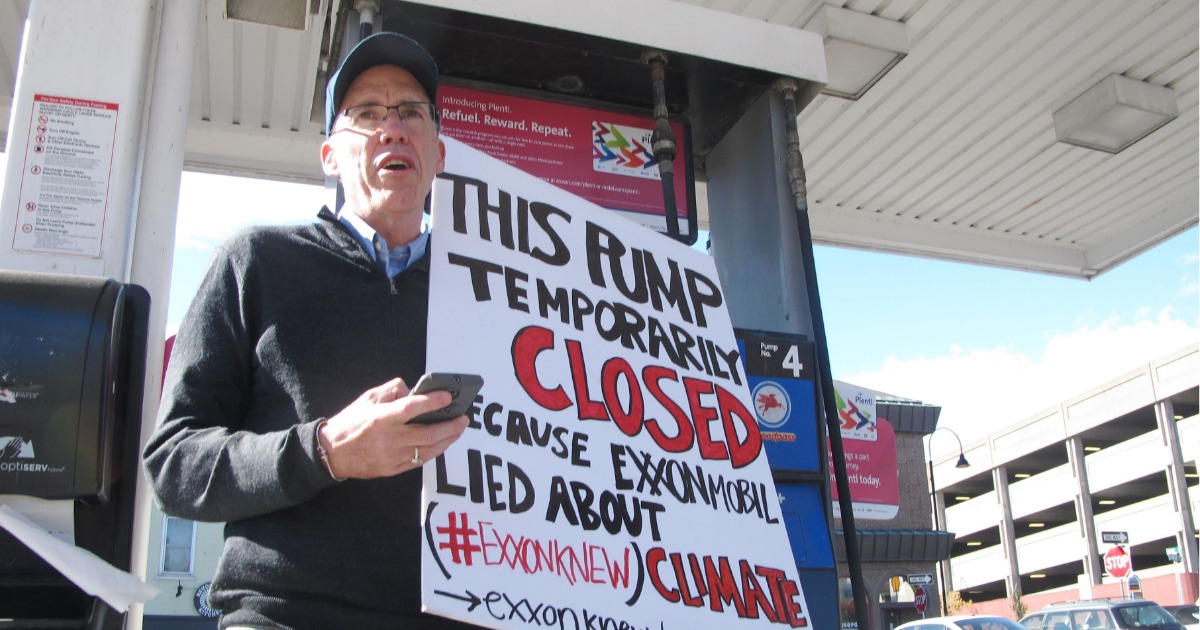After fighting subpoenas on grounds of jurisdiction, Exxon-Mobil has been told that it will have to turn over records to New York’s attorney general, Eric Schneiderman, that could reveal just how much the oil company giant knew about global climate change and the part played by fossil fuels.
The investigation was sparked by questions about a decision Exxon-Mobil executives made not to “write down” the value of its oil fields (in other words, declare them less valuable). In the wake of a collapse in oil prices, virtually every other major oil company had taken advantage of such “write-downs.” It made economic sense: at the time, an article in the Wall Street Journal pointed out that:
“…since 2014, oil producers world-wide have been forced to recognize that wells they plan to drill in the future are worth $200 billion less than they once thought… Because the fall in prices means billions of barrels cannot be economically tapped, such revisions have become a staple of oil-patch earnings, helping to push losses to record levels in recent years.”
In the original filing, Katherine Milgram, who works for the NYAG’s office, stated, “Exxon is the only major producer that has declined to take impairment charges or write-downs.” That has raised a few red flags for accounting experts, as well as AG Schneiderman.
While Exxon-Mobil claims their reason for not writing down the value of its assets was because they expected their value to eventually rebound, Schneiderman believed it was meant to mislead investors. This is a violation of federal law, which makes it illegal to mislead shareholders about threats to a publicly traded company’s revenues – and thus has drawn scrutiny from the Securities and Exchange Commission as well.
Both Exxon-Mobil and the company’s accountants at Price Waterhouse Cooper LLC (PWC) were served with subpoenas, demanding documents related to this investigation. Those documents may provide more evidence that Exxon-Mobil executives have been covering up the truth about fossil fuels and their effect on global climate for decades.
Corporate trial lawyers for the defendants argued that since the company is domiciled in the state of Texas, the laws of Texas should apply. In this case, it is a law protecting confidentiality between an accountant (PWC) and the client (Exxon-Mobil). However, New York has no such law. When the lower court rejected that argument, Exxon-Mobil appealed the decision – and the appellate court has upheld the lower court’s decision.
Exxon-Mobil is not giving in easily. A spokesperson for the company said “We…are assessing our options and potential next steps.”
New York is not the only state looking into Exxon-Mobil’s shenanigans. Massachusetts has also been investigating the company. Exxon-Mobil filed a motion for an injunction in a Texas federal court to block that investigation, claiming that the state’s AG, Maura Healy had “political motives.” Meanwhile, Schneiderman, a Democrat, is facing some heat from GOP legislators who (naturally) deny the existence of global climate change and are attempting to use federal authority in order to stop the investigation.
One bit of knowledge that has come out is that current Secretary of State Rex Tillerson, during his tenure as Exxon-Mobil CEO, had a separate email account under the name of “Wayne Tracker” that he used for discussions on climate change. Not surprisingly, Exxon-Mobil is claiming that those emails have been “lost.”
How convenient.





